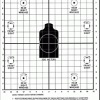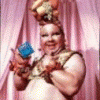Leaderboard
Popular Content
Showing content with the highest reputation on 11/28/2014 in all areas
-
As some of you know or may have seen, I sold the Legacy specB last week. It was good timing, and I feel I maximized the car still having interest and being in very good condition. For months I had wondered, if the specB got in an accident? What would I replace it with that I would be happy with? Since Subaru was not going to do another turbo Legacy, I was frustrated. So, the only thing that I could rationalize was a STi. I drove the 2015, but the new look wasn't sitting well with me. I narrowed it to the 2011-2014 body, first wanting a hatch, but then the sedan took over my interest. I dislike the wing miserably. I can't justify the cost to change it, but have my feelers out there to swap with a WRX trunk lid. I found a 2011 Limited with 8,100 miles on it. The guy bought it two years ago with 5,000 miles on it. It has sat in his garage and just been looked at. The owner was meticulous in its cleanliness, to include the undercarriage. He was moving and the car would not be going with him. He had done many little extra's that I would have done, and the more we talked, the more I knew this was the car. I looked at several STi's, but wanted the dark grey with the features this has. So here it is. Brought it home. http://i99.photobucket.com/albums/l284/dsnowgod/63CFCE66-122C-47F4-9456-B886E7EEA559_zps01xqreon.jpg With snow wheels, tires, and windows tinted. http://i99.photobucket.com/albums/l284/dsnowgod/521B0F9C-88B6-418D-8383-13B5E032A18F_zpsh5p1y0fj.jpg1 point
-
OK, this is going to be a long post. I'm going to write up what I think happened on August 9th in Ferguson based on the totality of the evidence presented to the grand jury. I want to point out that I went through about 3 months of testimony in 2 days. I was primarily looking for new evidence that hadn't been presented in the media, things that the grand jury seemed to think were especially important, what instructions the grand jury received, and how credible the witnesses seemed on the stand. I think I did a pretty good job, but may have missed things. My opinion is obviously not the final say, but I've approached this with an open mind and I think I'm being fair to both sides. Note: this account includes my own conjecture, so please don't quote indivual sentences and say "cite!?!" like a jackass, because I might be speculating. If you're curious about where I got something, ask and I'll clarify if it's speculation or based on evidence, or both. The Robbery Michael Brown stole a carton of Swishers from the QuikTrip at the corner of Canfield Dr. and W. FLorissant Ave. Shortly following the theft, someone called 911 and reported a description of Brown, Johnson, and what was stolen. Brown and Johnson began walking down Canfield Dr. Their destination was either to Johnson or Brown's apartment, they hadn't yet decided. The two divied up the boxes of cigarillos. Johnson put his boxes in his pockets in order to conceal them; Brown did not. They could have stayed out of public view; if you look at the satellite view of the street, you'll see that there are houses and a field they could have chosen to walk through, and once they hit Coppercreek Rd. they could have gotten off the main road altogether. Johnson would have preferred this, but he followed Brown's lead in walking down the middle of the street in a manner which Johnson described as "bold." Brown's attitude here is important. The QT is the closest convenience store to his apartment, it was broad daylight on a Saturday, and yet he made no effort to conceal his crime, even when he saw the police. The Police Respond Darren Wilson was finishing up a call further down Canfield Ct. when he offered his assistance on the robbery call. Nobody responded, but he heard the description over the radio. Nevertheless, when he saw Brown and Johnson walking down the middle of the street, he did not immediately peg them as suspects, perhaps because their behavior was too nonchalant. He stopped to order them onto the sidewalk, either politely or rudely depending on who you believe. Not interested in diverting his attention to further harass jaywalkers, Wilson began driving away when he noticed the Swisher cigarillos Brown was holding. He put the Tahoe in reverse and backed up alongside Brown and Johnson, stopping at an angle in the street, close enough to the pair that they had to step out of the way. Brown ended up closest to the driver's door. Wilson instructed Brown to approach, and Brown stepped forward a step or two until he was standing right by the door. The Altercation Wilson attempted to open the door, but Brown's body was too close and it latched closed again. It's unclear what happened next so this is going to be extremely heavy on the speculation. Brown put his hand on the exterior window sill. Perhaps Brown found it humorous that the police officer put his car in a position that he couldn't open the door, and then put his hand to block the door as if to say, "It's your dumb ass fault that you can't get out of the car, so let's talk here like this." Wilson reached up to push Brown's arm out of the way, and Brown pushed back to keep his hand or arm on the door. Wilson, not expecting any resistance over a simple stop for $48 worth of stolen property, was jolted into action by adrenaline. With Brown's hand now entering the vehicle and making contact with his body, Wilson grabs Brown's right arm and pins it to the inside of the door. Brown, still not viewing his own actions as "resisting arrest," upset that his arm is being pinned, and possibly in pain, hands his cigarillos to his friend to free up his left hand. He moves his head and shoulders into the police cruiser and punches Wilson with his left hand in the right side of the face. The punch was hard, because Brown is a big dude, but not that hard, because it's hard to swing when you're leaning into a car like that. Nevertheless, Wilson, feeling trapped in the car and dazed due to the assault, makes the determination to draw his weapon. Rather than prompting Brown to cease resisting, the sight of the gun causes Brown to go on the defensive. Brown pulls his right hand up to block the gun's trajectory upward. Wilson doesn't know what Brown is doing reaching out with his hand on his gun, so he tries to fire. It does not. He tries again and it does not. Finally, he pushes back from the door to free the gun from Brown's hand, and as soon as he does it goes off. Brown is shot in the hand from 6-9 inches away. The window shatters when the projectile enters the door. Both Brown and Wilson are stunned by this. Brown's hand is still in the car, bleeding, and too close to the gun for Wilson's comfort, so he pulls the trigger again, hitting nothing. Brown runs. The Chase Brown runs east down Canfield Rd. Wilson opens the door, then pauses to call into his radio that shots were fired and/or backup was needed. He takes off after Brown with his gun at his side. Brown is maybe 75 feet from the police cruiser; one of his sandals had fallen off a few yards from the police cruiser, and the second falls off further down. Wilson shouts at him to "Stop! Stop! Stop!" Brown continues to run, in socks, for another 30 yards. He steps on a rock, flinches from the pain, and decides that he's not going to outrun the cop, not with his physical (weight) condition, lack of shoes, and gunshot wound. He is approximately 45-50 feet away from Wilson at this point. The Critical Moments Brown executes his next series of moves quickly. He stops and whips around. Dorian Johnson testifies that he says "I don't have a gun" in an angry manner. Based on other witness testimony, I believe he instead said "Okay, okay, okay," but still in an angry manner. He begins walking back towards Wilson while putting his hands up, palms out, at a shoulder level but with his arms at a 45 degree angle as if to say both "Look, I don't have a gun" and "calm down" in the universal "simmer down now" hand motion. He is trying to surrender, but he's not hiding his mood and he's moving too quickly. He lowers his hands thinking that he's already made his intentions clear. After moving toward Wilson about 10 feet, or a few steps, Wilson makes a choice. Michael Brown has already resisted arrest, assaulted him, and put his hand on his weapon, and now he's walking towards him, looking angry, with his hands at his sides. He opens fire, 6 times, hitting Brown critically in his chest, puncturing his lung and causing his chest cavity to fill with blood. Brown is now 30 feet from Wilson. Blood splatters on the ground from an arm wound. Brown feels like he's been kicked in the chest by a horse, he bends over at the waist and begins moving his hand up to his belly. This puts him off balance, and he instinctively begins moving faster as his legs move out to try to catch his balance. He picks up speed and his head drops, pointing directly at Wilson. He is 15 feet away. Wilson takes a few steps backward and fires 4 more times, hitting Brown in the forehead and blowing out his right eye, then fatally hitting him in the top of the head. Brown takes 2 or 3 more steps during this final volley, and at the final head shot goes limp and drops to the pavement like a rock. A large quantity of blood flies about 3 or 4 feet forward, like a balloon popping. Wilson is left standing about 6-8 feet from the body. The Aftermath Once Brown turned around, he and Wilson were facing each other. From Wilson's perspective, Brown slowly picked up speed and lowered his head over the course of a 40-45 foot "charge." I think Wilson saw what he saw, but I don't think he appreciates that the wounds inflicted by his first six shots were directly responsible for his own perception that he was being charged. Other witnesses saw Brown with his hands up or at his side or at his belly, depending on where they were looking, when they were looking there, and just by chance, what visual was seared into their memory. Watching Brown's eyeball and head essentially explode must have been extremely traumatic. I believe this visual trauma accounts for the varying details of Brown's hand and body position, as well as the many incorrect accounts of how far Brown and Wilson ran from the police cruiser. A 20 second foot chase suddenly doesn't seem very important when you just saw someone die in an incredibly graphic manner. I believe the vast majority of the witnesses gave truthful statements, although many of them did not see crucial parts of the encounter and therefore their statements were less compelling. The few witnesses who lied were exposed on the stand. The Grand Jury What I've struggled the most with is whether or not the grand jury came to the right decision. To say that the grand jury was forced into an unusual situation is to put it mildly. They were given a lot of evidence, some of it solid, some of it garbage, and they had to sort out what was important on their own. There were no opening statements, no closing statements. No cross examination of any experts or witnesses. They weren't given instructions until the day before their deliberations started. I think that Darren Wilson acted hastily when he opened fire on Michael Brown in the street, considering Brown was unarmed and roughly 40-45 feet away. I don't think he gave Brown clear instructions, such as "Get on the ground or I will shoot you right now." Legally, I don't know that he needed to if he felt his life was in danger. I don't know if Brown would have complied. I don't think Wilson would have been convicted at a trial. I think I would feel better if he'd had one, but I'm going to stop short of saying that the grand jury made the wrong call. My opinion is that this shooting exists in a much debated legal gray area, where I think someone died unecessarily but at the same time I don't think, beyond a reasonable doubt, that a law was broken. Do I think a law was probably broken? Sometimes I think yes, and sometimes I think no. I really don't know what I'd do if I were sitting on the grand jury. I don't think I'd want to.1 point
-
This seems the most likely path that will be taken after the recent spate on cop shootings, but cameras can be a double-edged sword. There will always be grey areas with every person-to-person interaction, which once captured on digital media can be used both for and against each party. Let's make the premise that everything in life is recorded. A busy mom or dad forgets the kid in the car seat and a child dies in a hot car. Almost certainly a horrible accident, but do we indict? A teenager reaches for something in his car and crosses the center line and kills another driver. Accidental or indictable? A hunter drops his rifle and kills his hunting partner. Accident or negligent homicide? In all these incidents, a camera would show when and where things went terribly wrong, but would it prove innocence or guilt? Show malice of forethought? Record a human lapse of judgement? Who's gonna interpret the data? From which viewpoint will the person behind camera be judged? Can we realistically achieve a sufficient level of training for police to ensure no error will ever be made? Human beings are susceptible to making mistakes, and yet do we hold an officer accountable to a higher standard of 'infallibility' than we do ordinary people?1 point
-
I have two tickets to the game tonight in 207 and can't go. Instead of selling them, I'll give them to you in exchange for a donation to Mid Ohio Foodbank. First person to PM me gets first dibs. You'll have ten minutes from my reply PM to prove you made the donation and give me your email address. I'll then transfer the tickets to you through Ticketmaster. Again, I have one pair and only one person gets them. You PM me saying you want them. I will reply to the first person. The first person then has ten minutes to donate and reply back to me with proof. If ten minutes passes, I offer to the second person. I'm not setting a donation minimum, but please don't do a dollar or two. That defeats the spirit of this. Donation link: https://www.midohiofoodbank.org/donate-now?c=1 point
-
1 point
-
Don't know if you know or took into consideration building costs and off season discounts that contractors give just to keep money coming in during the winter but if you expect to spend 14 on that garage in June, it could get done for 10-11 in December1 point
-
Hmmm. Interesting rant. What exactly does it mean? The world is full of pussies and thugs, and the only thing keeping them apart is the cops? I'm conflicted…. I'm with you on the 'fewer cops' idea, tho, especially when I'm hooning the backwoods.-1 points
This leaderboard is set to New York/GMT-04:00




